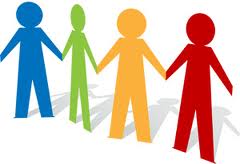My cousin cried at the table. I did not understand why until my mother explained why she herself cried, too. The Passover seder invites learning, traditions, symbolic foods, and all the things that family gatherings might entail. The seder also invites, though, a recognition of darkness that we tend to undervalue.
Early in the seder, we hold up the dry, flat cracker known as matzah and declare: “This is the bread of affliction. Let all who are hungry come and eat.” Some will actually open their doors to see if someone off the street needs a seat at a seder meal. The emphasis is typically on the existence of this poor person’s bread that can be shared. The declaration, though, goes on to say, “Now we are here, next year we will be in the Land of Israel; now we are slaves, next year we will be free people.” Even as we extend hospitality to anyone who may be hungry, we are supposed to recognize ourselves as slaves.
Thankfully, we do not have to wait until next year to be free. The seder is not that long! In a matter of pages, we go from seeing ourselves as slaves to seeing ourselves among those whom God freed from Egyptian slavery through the miracles of the plagues and the Exodus from Egypt. The trick is first to see ourselves as slaves so that freedom means more to us.
My cousin and my mother felt a kind of slavery the year of that seder when they cried. My cousin was making a significant career change. My mother was making a significant life change. Neither was actually a slave; both were afflicted. The presence of that affliction in their lives changed the seder that year into something that has stayed with me for decades.
The seder is not just a re-enactment, it is not just a ritualized holiday celebration, it is an opportunity to go where we are too often afraid to go. The seder is time for vulnerability, it is a place for bringing our baggage, and it is a process of putting those darker parts of our lives on the table. We achieve spiritual freedom when we can say something about what is holding us back. We can achieve spiritual freedom when we see changes we might have made to end our affliction. But, we will not achieve spiritual freedom if we are enslaved to telling only the positives in our lives, the smiley-face version we all too often post on social media.
Declaring “this is the bread of affliction” is the reminder that suffering is real and belongs in the conversation. As Priya Parker mentions in her book “The Art of Gathering,” if you do not make a place for the darkness, it will find a way in. My cousin and my mother brought their darkness to that seder so long ago. What I remember most from that night, though, is how much happiness there was after dinner. By inviting their afflictions, we all tasted the joy of freedom more deeply. This year, let us welcome our afflictions; next year let us be that much more free.
About Rabbi Jeremy Winaker
Rabbi Jeremy Winaker is the executive director of the Greater Philadelphia Hillel Network, responsible for West Chester University, Haverford, Bryn Mawr, and other area colleges. He is the former head of school at the Albert Einstein Academy in Wilmington and was the senior Jewish educator at the Kristol Hillel Center at the University of Delaware for four years. Rabbi Winaker lives in Delaware with his wife and three children.


Comments